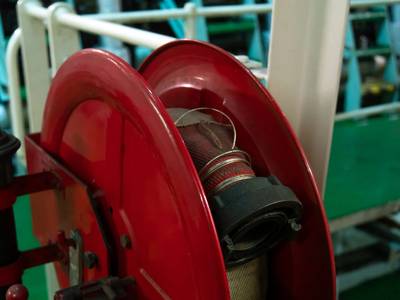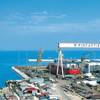US Coast Guard: Latvia Records Highest Detention Ratio in 2022
The US Coast Guard’s Office of Commercial Vessel Compliance has released its U.S. Port State Control Annual Report for 2022, with Latvia noted as having the highest detention ratio, ahead of Bolivia.
The report lists highest risk flag administrations based on their 2020-2022 detention ratio as: Latvia (57.14%), Bolivia (31.25%), Togo (7.69%), Curacao (4.88%), Italy (3.39%), Turkey (2.90%) and Saint Vincent and the Grenadines (2.30%).
Medium risk flag administrations were Cyprus, Antigua and Barbuda, Canada, Bahamas and Isle of Man.
Administrations removed from last year’s targeted list were: Belgium, Saint Kitts and Nevis, Portugal, Israel, Tanzania, Vanuatu, Mexico and Panama.
In 2022, the Coast Guard conducted 8,706 SOLAS safety exams with a total of 78 detentions. The annual detention rate increased from 0.73% to 0.89%. The three-year rolling average detention ratio decreased from 0.87 percent to 0.80 percent.
Data this year shows the number of detentions related to fire safety increased. Oil accumulation in the engine room stood out once again with over 70 deficiencies noted. Oil-soaked lagging, fuel leaks, excessive oil in the bilge, and open buckets filled with oily waste throughout the engine room were the most common deficiencies cited.
The number of Safety Management System (SMS) deficiencies increased slightly over 2021 totals. Deficiencies related to maintenance of the ship and equipment, reports of non-conformities, and deficiencies related to shipboard operations were most common.
Detainable deficiencies related to lifesaving systems remained fairly consistent with 2021 totals. Deficiencies related to rescue boats, lifeboats, and the operational readiness of lifesaving appliances were most frequently found.
MARPOL Annex I deficiencies increased from four in 2021 to 22 in 2022. Oil filtering equipment and oil discharge monitoring systems accounted for almost half the deficiencies.
In 2022, the Coast Guard issued 25% more deficiencies for non-compliance with its ballast water regulations over the previous year’s numbers. The majority of the deficiencies were issued to vessels with inoperable systems, deficient ballast water management plans, and to those that failed to report mandatory ballast water practices to the National Ballast Information Clearinghouse (NBIC) within specified timeframes. However, the Coast Guard is seeing an increased trend of vessels reporting their inoperable systems prior to arrival.















